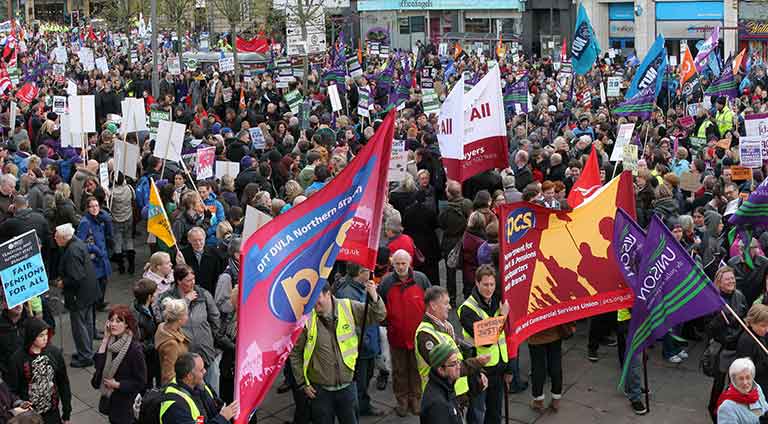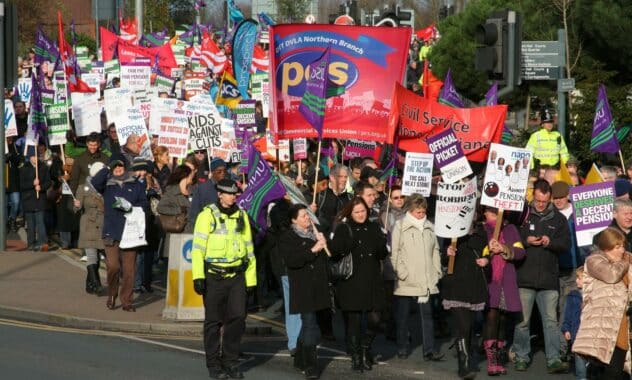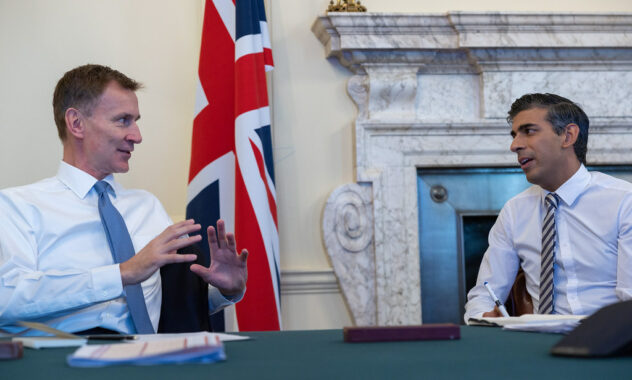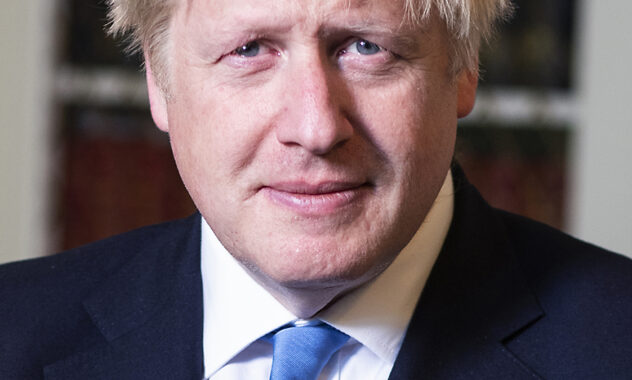Trade union tax: Certification Officer levy comes under fire
Trade Union levy and financial penalty legislation is introduced to the House of Commons and comes under heavy fire

This week, legislation was passed in the House of Commons which not only imposes a levy on trade unions to cover the costs of the Certification Officer but could hit trade unions with huge financial penalties. The legislation – known as the draft Trade Union (Levy Payable to the Certification Officer) Regulations 2022 and the draft Trade Union (Power of the Certification Officer to Impose Financial Penalties) Regulations 2022 – was passed with the minimum of debate, as it came in the form of a ‘statutory instrument’, secondary legislation which authorises Ministers to implement legislation.
The regulations, passed on Wednesday by 296 votes to 176, with the DUP joining Conservative MPs in supporting the legislation, charges a levy of 2.5 per cent of total union income, to cover the costs of the Certification Officer, the trade union regulator.
Trade union officials, MPs and labour lawyers have pointed out the inconsistency of trade unions paying what is essentially a tax for the privilege of regulating themselves. Professor Keith Ewing, Professor of Public Law at King’s College London, said:
“It is surely very unusual – if not unique to impose taxes of this kind. Are MPs taxed to pay for the standards’ watchdog?”
In the committee debate in the House of Commons on Tuesday, Apsana Begum, the Labour MP for Poplar and Limehouse, pointed out that comparable organisations generally did not pay a levy to their regulator:
“There are other bodies that don’t pay tax to regulators. Broadcasters don’t pay tax for Ofcom. Data processors don’t pay tax for information commissioners.”
The legislation is part of a package of reforms contained in the much-criticised Trade Union Act of 2016 but has only now been introduced in Parliament. Amongst the new powers of the Certification Officer is the power to fine trade unions if rule breaches are deemed to have occurred.
In the lead up to the introduction of the legislation, the TUC highlighted that, in 2020-21, the Certification Officer dealt with only 34 complaints and that not a single one had resulted in further action. Clearly, however, the new powers have the potential to embroil the unions in red tape, whilst also encouraging ‘vexatious claims,’ something pointed out by the TUC’s Frances O’Grady:
“Rather than dealing with the problems working people face, the government is trying to tie unions up in more red tape. It is telling of the government’s real concerns that they choose to spend valuable parliamentary time on new anti-union rules. Now is the time to be working with unions, not undermining them. That’s why MPs should reject these cynical and ideological proposals — and instead join with unions and their members in delivering better pay and conditions for working people.”
Former Labour leader Jeremy Corbyn, in a comment to the Morning Star, said that the legislation amounted to “another piece of anti-union activity by the Tories,” adding, “We need a firm pledge from the Labour Party that they will reverse and repeal this as soon as coming into office.”
In the House of Commons, Opposition MPs branded the new levy a “trade union tax.” Imran Hussain, Labour MP for Bradford East & Shadow Employment Rights and Protections Minister, spoke passionately about the consequences of the legislation:
“When trade unions are empowered, working people are empowered and we all benefit. Yet this Tory Government have just embarked on the biggest assault on trade unions in years with their trade union tax.”
On the morning of the committee stage, Mr Hussain had written a piece for Labourlist, outlining what he called an “attack on working people”:
“It will be working people who lose out as unions are forced to spend money that should instead be spent on representing them. The truth is the levy has nothing to do with the government’s claim of improving transparency, but everything to do with their opposition to workers organising to improve their pay, terms and conditions.”
On Twitter, former Shadow Secretary of State for Employment Rights, Andy McDonald , called the changes ““sheer naked anti-trade unionism”, while Ian Lavery, MP for Wansbeck, said:
“This is bizarre in anyone’s world. Here we have the trade union police being given powers to investigate unions even where there has been no complaint or if they receive complaints from non-related parties. To top it off, the unions have got to use their members’ contributions to fund the investigation. This really does beggar belief. It’s rightfully been called a trade union tax which should be actively opposed by unions and politicians alike.”
The Institute of Employment Rights (IER) has been highlighting the concerns of trade unions and labour movement bodies over this new levy and the powers associated with it, periodically over the last few years. This week, IER Director Ben Sellers called the legislation “deliberately and unnecessarily punitive” and said:
“These ‘reforms’ should be seen in the context of the government’s whole approach to unions, which is to salami-slice their rights while at the same time feeding a false narrative that unions are somehow serial ‘rule breakers’ when genuine complaints against them are negligible.”







